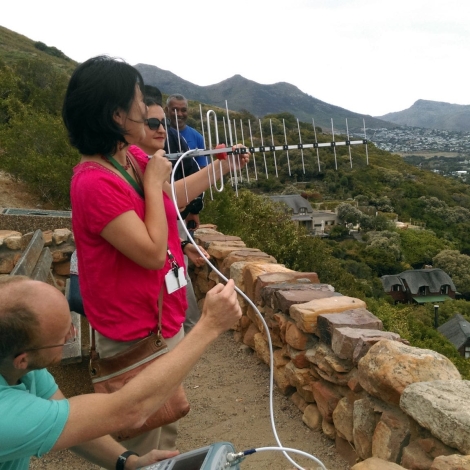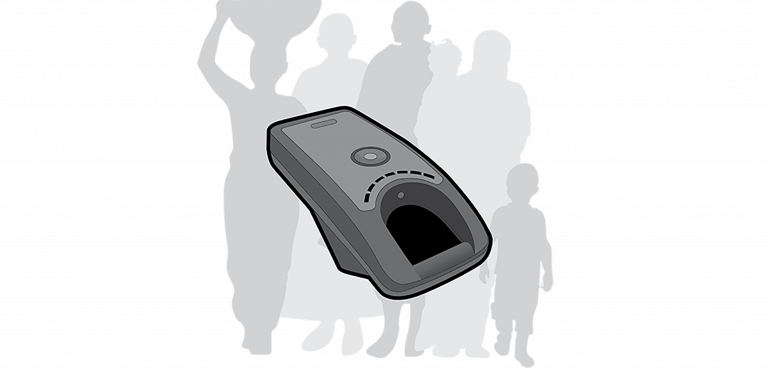My colleagues at the ICT4D Centre at the University of Cape Town have been working alongside residents of Ocean View Township to set up access points to low-cost Internet and a free local wireless network in the under-resourced community. At the moment, aspiring hip-hop artists use the local network to share their videos and people are only just beginning to employ the educational and work-reducing tools we included. The experience has been another reminder that in global development, technology is often the easy part. I’m researching one of the harder aspects of a project like this: I’m trying to discover what people want.
We call the network the iNethi Project. It seeks to co-design a community-owned wireless network to support local content sharing and services, and to lower the cost of using the internet. The costs of data are high. Inethi targets people who have few resources. Many of them are unemployed. And many do not own mobile phones or own low-end phones.
When we first introduced the network, a common sentiment among Ocean View’s residents seemed to be confusion about how to use it, and skepticism that it was important given that unemployment is one of the biggest problems in the community. Part of my role has been to understand communicative ecologies in the community, and to understand what kind of services they would like. Now the local network offers chat applications, social media platforms, Khan Academy, Wikipedia and functionality to upload and share videos.
Once people have heard about the services and tools this network could offer, many have expressed their wishes for functions and apps we could add. Examples that come to mind are apps for anonymous reporting to the police, electronic wallets, an app for the local medical clinic to schedule visits and follow up on medications, a digital phone and address book to identify local businesses, platforms for daycare and early childhood development centers to enable better communication with parents, and an online presence for shop owners in the community. Also, of course, some residents have requested a DJ app to learn DJ skills and share music. It’s a creative community.
Students are developing apps for the community as a part of a human-computer interaction module at the University of Cape Town. They have been presented with the ideas that the community has come up with, and they will come up with apps to meet those needs. They are co-designing and prototyping with community members. The top ideas that the community likes could potentially launch on their network if funding and other resources are available.
Essential co-design
Co-design has been of utmost importance. We undertook several activities as stepping stones to developing different levels of collaboration between researchers and the people of Ocean View:
- The development of a governing board and acceptable use policy to govern the use of the platform. The board comprises purely of community members
- The initial development of local services. Local servers have been set up. The servers are running several open source services, including social networking (Diaspora), chat (RocketChat), file-sharing (OwnCloud), and web authoring (WikiFundi).
- The ongoing registration of the iNethi Ocean View as a cooperative with Ocean View community members as directors that define the trajectory of the project. The residents named their cooperative OVCOMM DYNAMIC.
- The development of capacity building workshops as per community demand
As the iNethi Project continues developing, we are learning ways to better collaborate and foster complete ownership of the project by the community. The university would like to step down and let the community run it. The community is trying to put together a business model for how to make this sustainable and coming up with ways to raise funds. By the end of the year, it would be nice if the community could do it on their own. - The iNethi Project is just one of the programs underway at the ICT4D Centre. Others include co-designing ICT solutions with mothers of pre-term babies; co-developing tools for the governance of small scale fisheries (Abolobi); implementing low-cost and sustainable tools for improving water quality (iComms) and the digital preservation of heritage and the structure of archives (Digital Libraries).
An academic hub for community engagement
The ICT4D centre is an academic hub focused on the use of information technologies in South Africa, across Africa and in other developing regions. It houses multi-disciplinary researchers that seek to study the ways in which existing and emerging technologies affect and are appropriated by groups of people, particularly in under-resourced communities. Researchers also seek to develop technologies designed for the context and constraints in these communities.
At the core of the development of these technologies is the continued process of learning how to engage with communities. Building partnerships and fostering relationships with communities not only paves the way for impactful innovation, but sets the tone for sustainable and meaningful change.
About the Author
Hafeni Mthoko is a postdoctoral fellow at the Centre in ICT4D at the University of Cape Town. She aspires to transcend the boundaries of the ICT discipline to explore how information systems and technology can support the social sector. Her interest is in the evaluation of development initiatives, with an aim of fostering social change.

